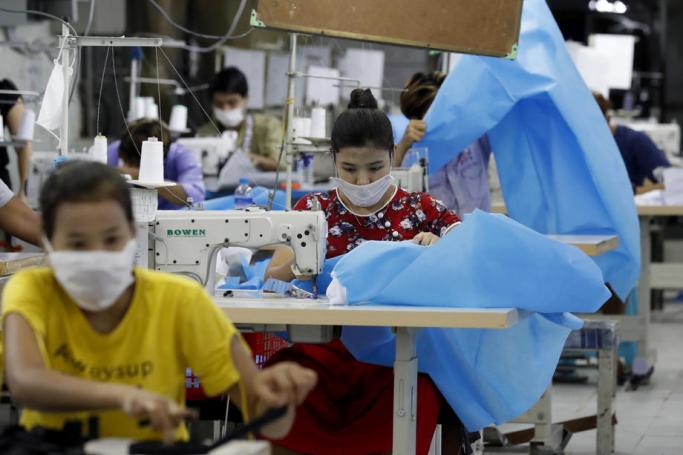Pan Myat knows she needs to keep her mouth shut. The pretty 23-year-old garment worker recognizes from experience that her rights have been thrown out the window in the wake of the 2021 Myanmar military coup.
Myanmar is in the midst of a crisis. Aside from the security situation, jobs are hard to get and keep and workers struggle to maintain a modicum of rights. This is particularly true for certain classes of workers.
Pan Myat works in a garment factory in Hlaing Tharyar Industrial Zone. She said that she did not have full access to her rights like before and lost her freedom of expression due to the current political crisis in Myanmar.
However, she continues working to cover the cost of her accommodation and food. She has no other choice.
“We cannot report unfair acts like before anymore as they (factory authorities) threaten to call soldiers to arrest workers. So, no one dares to report about rights violations. We could only express our concerns secretly to trade unions,” said Pan Myat.
The pressure on workers is building.
“The company increased the number of clothes produced. They would scold and swear at those who complain. Sometimes, they physically abuse us. Depending on their mood, we get scolded often,” said Pan Myat.
This is a typical complaint. Workers said that some employers are taking unfair advantage of Myanmar’s unstable political situation. Another worker from the garment industry said on the condition of anonymity: “The political crisis is so bad and there is no unbiased legal system in Myanmar, so we dare not complain to the authorities about labour rights being violated.”
Pan Myat knows employers are tightening the screws, seeking to profit from poorly-paid labour.
She says the manufacturers and factories’ managers and supervisors are overusing their authority by oppressing workers. They push workers to work more than the average eight hours a day, call for overtime on holidays, fail to provide full payment of social security benefits, and reduce the monthly salary gradually.
“They (employers) force workers to do overtime even on holidays. Even though they said they would pay overtime fees, they did not. Everyone wants a day off but they forced us. They threatened that those who refused to do overtime would get fired,” Pan Myat said.
Illness is no excuse.
“It is also difficult for us to take sick leave because they cut our salaries if we take leave. We do not get full social security benefits as well. Before, workers unions would negotiate for us. We could even protest if the negotiations did not work. However, now we are threatened,” said Pan Myat.
Things are particularly difficult for those on the lower rungs of society.
Another young factory worker said on the condition of anonymity, “I cannot continue my education because of the political and economic crisis in our country. I don’t have a degree, so I have only a few options in choosing a job. And I don’t have work experience. The current situation is very difficult for young people.”
For Pan Myat, her dreams are dashed.
As a young girl, Pan Myat would envy some young people with rich family backgrounds. She wanted to be a university student when the universities opened regularly. As someone born into a poor family, she did not have many choices.
Moreover, Pan Myat, a young and beautiful girl, is often faced with sexual harassment. Unlike other adults, she has to be cautious about everything.
“I want to only study at this age but I don’t have a chance. However, this situation [the political crisis] worsened my life. Being unjustly forced to work and being underpaid is bad. What’s worse is being unable to speak out about the injustice. I have to be patient because I need to meet living costs,” she said.
Often it boils down to survival of the fittest, with some workers getting discarded.
Some employers take no responsibility for anyone who became disabled in the workplace, according to workers. Rather than giving social security benefits, some employers cut the salaries of the workers, using excuses. Some employers report to the police to arrest people like the leaders of workers’ unions.
Pan Myat has a dream of continuing her education but under the current dire circumstances all she can do is hold on for dear life to her poorly-paid job.
Pan Myat is a pseudonym












